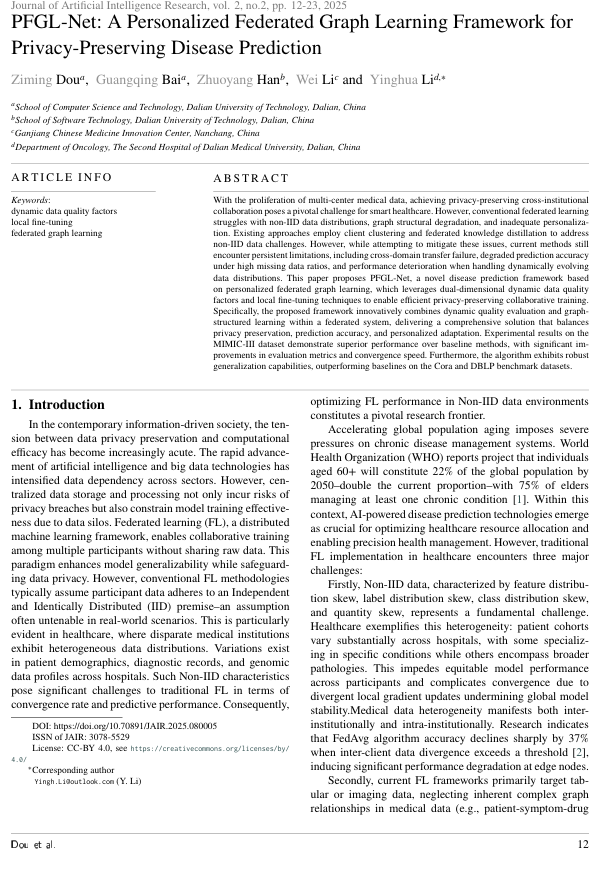PFGL-Net: A Personalized Federated Graph Learning Framework for Privacy-Preserving Disease Prediction
DOI:
https://doi.org/10.70891/JAIR.2025.080005Keywords:
dynamic data quality factors, local fine-tuning, federated graph learningAbstract
With the proliferation of multi-center medical data, achieving privacy-preserving cross-institutional collaboration poses a pivotal challenge for smart healthcare. However, conventional federated learning struggles with non-IID data distributions, graph structural degradation, and inadequate personalization. Existing approaches employ client clustering and federated knowledge distillation to address non-IID data challenges. However, while attempting to mitigate these issues, current methods still encounter persistent limitations, including cross-domain transfer failure, degraded prediction accuracy under high missing data ratios, and performance deterioration when handling dynamically evolving data distributions. This paper proposes PFGL-Net, a novel disease prediction framework based on personalized federated graph learning, which leverages dual-dimensional dynamic data quality factors and local fine-tuning techniques to enable efficient privacy-preserving collaborative training. Specifically, the proposed framework innovatively combines dynamic quality evaluation and graph-structured learning within a federated system, delivering a comprehensive solution that balances privacy preservation, prediction accuracy, and personalized adaptation. Experimental results on the MIMIC-III dataset demonstrate superior performance over baseline methods, with significant improvements in evaluation metrics and convergence speed. Furthermore, the algorithm exhibits robust generalization capabilities, outperforming baselines on the Cora and DBLP benchmark datasets.

Downloads
Published
Issue
Section
License
Copyright (c) 2025 Journal of Artificial Intelligence Research

This work is licensed under a Creative Commons Attribution 4.0 International License.

